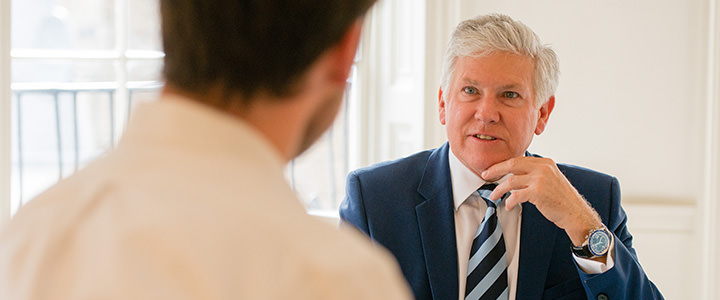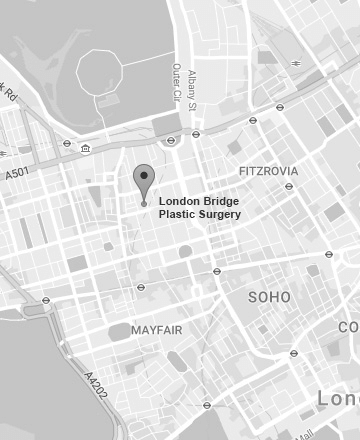Choosing A Surgeon

How do you know which surgeon to choose? Why worry about which surgeon does your operation?
Once you have decided to undergo Plastic surgery to improve your quality of life, the most important decision you will make will be your choice of surgeon. Simply stated your surgeon is the most significant factor in determining the outcome of your operation.
So how do I ensure that I choose a good surgeon for me?
There are several factors that you must analyse in choosing a surgeon.
- The surgeon’s training / qualifications
- The surgeon’s experience both general and specific to your procedure.
- Hospital affiliations
- Specialist registration
- General Practitioner recommendation
- Recommendation by friend or colleague
- Publications / Press / Advertisements
- Your own assessment at the consultation
The surgeon’s training and qualifications
Unfortunately all surgeons are not created equally! A Plastic surgeon will have undergone training in General surgery and having completed this initial tenure will have past the examination of one of the Royal Colleges’ of Surgeons and admitted as a Fellow. Having gained a broad foundation in Surgery,the surgeon would then enter an exhaustive period of training in accredited NHS Plastic surgery departments. Most will have developed and honed their skills in the management of a wide spectrum of Plastic surgery conditions and subsequently undergone sub-speciality training in a specific area.
Only when the governing body for Plastic surgery training, The Specialist Advisory Committee, was satisfied that the surgeon has completed the recommended training,that the surgeon is permitted to sit the Specialist Examination in Plastic Surgery. Satisfactory performance at this is rewarded with the Specialist Fellowship of the Royal College of Surgeons. The surgeon can then display the letters “FRCS ( Plast )” which then supersedes the previously obtained “FRCS”. The surgeon will then be registered on the United Kingdoms’ General Medical Council Specialist register. A surgeon cannot be on this register without completing an accepted training period and passing the required examinations for Plastic Surgery in the UK or EU.
Check that the surgeon you choose is on the Specialist list. For information contact the: GMC Specialist register 0845 357 8001.
Many surgeons will promote themselves as Cosmetic surgeons without any formal training in Plastic surgery and because they are not fully qualified they will not be on the GMC Specialist list. Most will claim extensive experience in Cosmetic surgery,but how can this be certified without any formal training or examinations. Unfortunately,for you the patient,full qualification is not the only criteria in choosing your surgeon.
The surgeon’s experience both general and specific to your procedure
Despite being fully qualified and registered on the GMC Specialist list,Plastic surgeons vary greatly in their experience in the many areas of Plastic surgery. Most Plastic surgeons in the UK hold NHS Consultant posts and perform a variety of different procedures. Many will have special areas of interest or are dedicated to a sub-speciality area and therefore restrict they surgical repertoire to a few procedures. Most private hospitals publish consultant directories that list the Consultants’ areas of interest,and are worth checking. Your GP may have a copy for your local hospital or you can contact the hospital where the surgeon works. You can also ask your surgeon about specific areas of interest.
Surgeons who practise wholly or mostly in the NHS will by necessity spend limited time in private practice and should perform a similar range of procedures in both sectors as recommended by the Royal College of Surgeons of England’s’ “Good Surgical Practice”
Ask your surgeon about NHS work and Private practice.
Even with full qualifications,experience in performing any operation is very important in achieving a good result,so ask your surgeon about his/her experience in your specific procedure.
Reputable,fully qualified surgeons will work in good hospitals that are fully accredited. The hospitals will be registered under the Care Standards Act 2000,and most will be accredited by the major health insurers.
Registration on the United Kingdoms’ General Medical Council Specialist list is the minimum criteria to ensure that your surgeon is a fully qualified Plastic Surgeon.
Call the General Medical Council Specialist register on 0845 357 8001.
General Practitioner recommendation
Your General Practitioner should be able to guide you in choosing a Plastic surgeon. If you trust your GP to act in your best interest,then you will trust his or her recommendation. The General Medical Council recommends that your GP is kept informed of all treatment that you undergo and Mr Inglefield strongly supports this view.
Recommendation by friend or colleague
A useful source of information can be obtained from family,friends or colleagues who may be able to recommend a particular surgeon. However,be aware that if either of these associates has not had a similar procedure,then you need to be certain that the surgeon has experience in your specific procedure.
Publications / Press / Advertisements
Advertisements in magazines or listings in the Yellow Pages can provide surgeons in your area. Be aware of the myriad of qualifications and associations listed in these. Remember to always check the training and qualifications of the surgeon and that he or she is on the Specialist List of the GMC.
Your own assessment at the consultation
Your consultation is a vital part of the process in undergoing any treatment or operation. It is at this time that your surgeon must obtain a full history of the problem area. A thorough assessment of your medical history including any current medication,allergies to medication,past or present psychiatric problems and a general social enquiry to assess level of exercise,diet,smoking and alcohol/ drug use is necessary. Your surgeon should perform an appropriate examination,to determine the feature to be improved and any factors that may put you at risk of surgery.
It is very important that you provide your surgeon with a full and factually accurate medical history,as any omission may expose you to significant risk(s) were to you proceed to treatment or surgery.
At your consultation,your surgeon should determine your goals of surgery and whether these are realistic or not. He/she should clearly describe any treatment or procedure,emphasising the benefits and the risks. You should be made aware of the likely recovery and the period before returning to normal activity.
You should be given sufficient time to ask questions and not be pressured or harassed into making a decision. Having a supporter with you at the consultation can be helpful.
At the end of the consultation,you should have a good idea about your surgeon and if he/she is right for you. You should be able to trust your surgeon and believe that he/she will keep your best interests of utmost importance.
Healthcare Commission – Advice for people considering cosmetic surgery.







